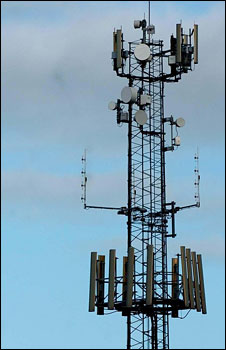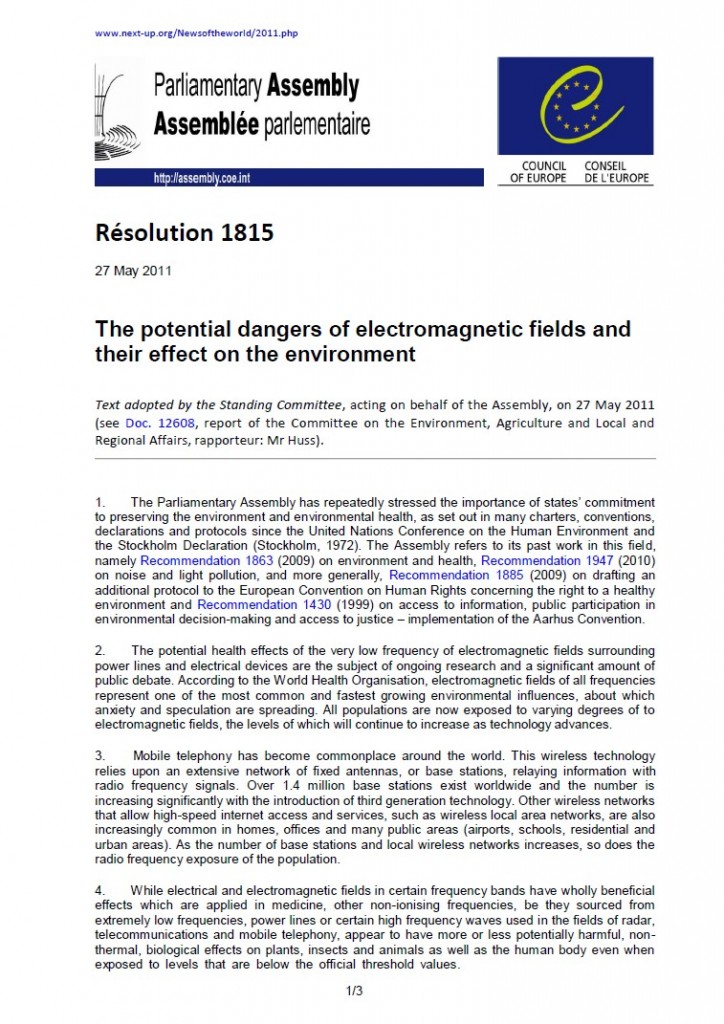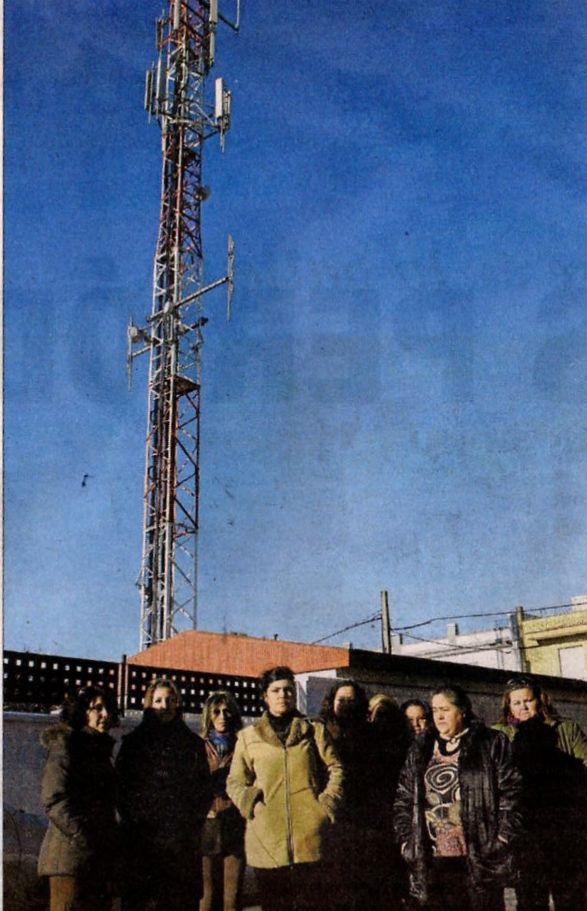Portada del sitio > Prensa > French mobile mast debate raging
BBC News

French mobile mast debate raging
Sábado 25 de julio de 2009 · 1070 lecturas
French mobile mast debate raging
By David Reid
Reporter, BBC Click
The mobile phone infrastructure is still growing to keep up with demand
The mobile phone has become indispensable to modern life. But some communities in France believe they are paying too high a price for this convenience.
The infrastructure that allows mobile phones to work is continuing to spread and change the world’s landscape.
But a storm is brewing in France over the location of mobile phone masts, with French courts ordering a number to be moved.
Residents living near them have health concerns, but scientists cannot agree if the technology has an impact on not.
Locals in the town of Brindas, in the south-east of France, voiced their opposition after a base station was put up in the middle of the village’s schools.
’Worse position’
Frederique Davos, from residents’ group Brindas Stop Antenna, criticised the chosen location.
"I think there isn’t a worse position in the whole of Brindas to put this mast," she said.
"It’s less than 100 metres from the kindergarten, primary school and playground; 200 metres from the village and 300 metres from the local college."
She said that there are fields and other spaces in the village that could have been used instead.
"It is not worth sticking the mast right next to the school when children are more susceptible [to potential hazards] than the rest of the population," she added.
Frederique Davos is unhappy about a new phone mast in her town Brindas
Campaigners cite the BioInitiative Report, in which some leading health experts urged a lower limit on the power of base stations.
They concluded that radio waves could lead to ill health, especially in children.
Hypersensitivity
There are also instances of individuals showing signs of being particularly sensitive to electromagnetic fields.
Professor Dominique Belpomme, from the Paris Descartes University and chair of the cancer research association Artac, agrees with the report.
"We have objective tests which show that there are some functional abnormalities in the brain," he said.
"We suspect that the symptoms patients have are causally linked with the electromagnetic fields."
But hypersensitivity aside, other scientists and the World Health Organisation said research into electromagnetic fields has revealed no major public health risk.
Jean-Marie Danjou, from the French Association of Mobile Phone Operators (Afom) supports this view.
"The World Health Organisation has indicated very clearly that there is no link between the illnesses these people suffer from and the presence of mobile phone masts or electromagnetic waves," he noted.
Mobile phones have influenced modern lifestyle globally
Cautious approach
The division of opinion has made it difficult for people to make up their own minds.
However, it is also very problematic for mobile phone operators to prove that masts are actually safe.
For this reason, French courts and campaigners are tending to err on the side of caution.
They believe in taking action now on an unproven risk, rather than waiting until the facts on a public health issue are known but it is too late.
Ms Davos from Brindas reiterated: "The telephone operators and the government have not managed to demonstrate to us that there is no danger to children and people living around the masts.
"We don’t want to live in doubt for 10 years and then our children or the people living here develop illnesses," she concluded.
The question of where best to situate base stations and at what power they should operate may never be definitively settled by science.
So the whole issue may only be resolved the old fashioned way - sitting down and having face-to-face talks.
Ver la noticia original AQUÍ







